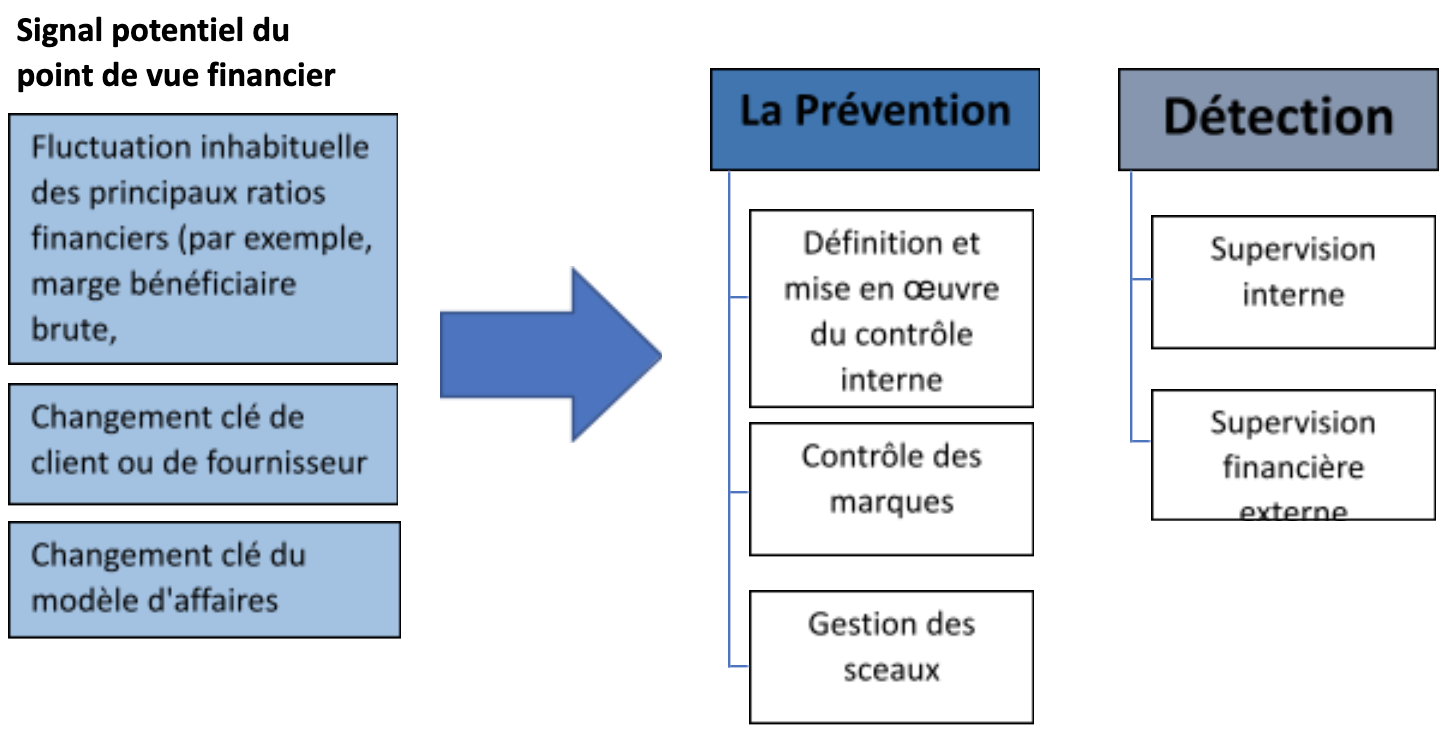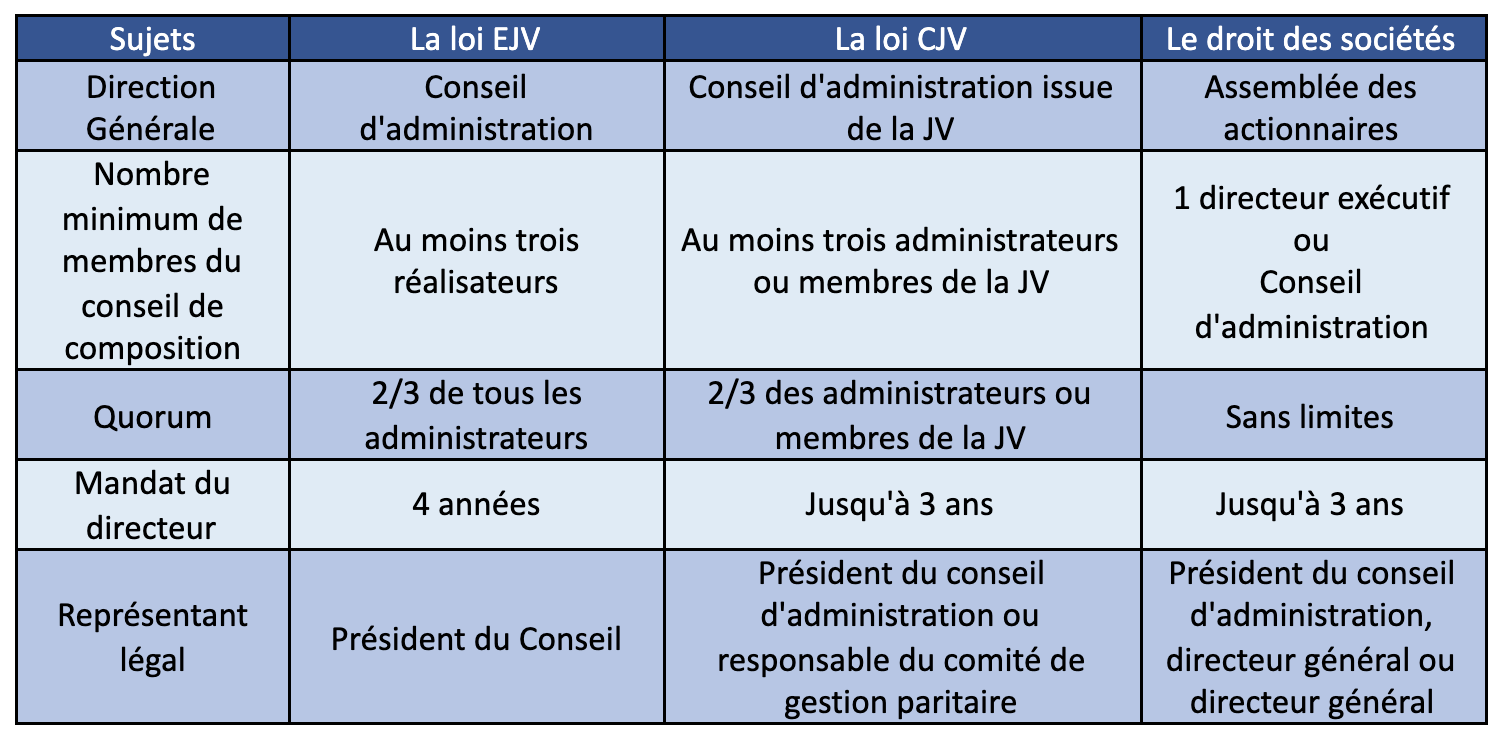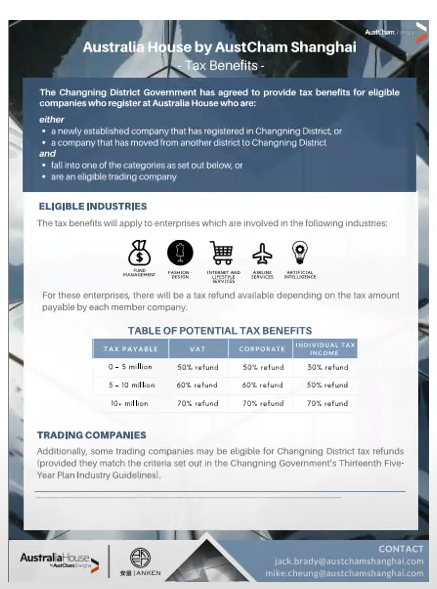Risques et problèmes rencontrés dans les JV en Chine – étude de cas
Nous avons remarqué que la plupart des problèmes dans une JV en Chine sont intervenues suite à deux principaux cas de figure :
- Le transfert présumé des bénéfices de la JV vers l’un des sociétés du partenaire chinois,
- Utilisation frauduleuse des tampons et sceaux légaux de la société.
Plusieurs signes annonciateurs sont apparus :
- Le développement d’un nouveau marché, contrat ou client dont la marge bénéficiaire s’est révélée très nettement inférieure à la marge habituelle de la JV,
- Des flux de transactions qui se sont révélés inhabituels à l’organisation de la JV , soit en terme de facturation, paiement, livraison via des sociétés tierces par exemple,
- L’utilisation du nom ou de la marque du partenaire chinois de la JV.
Il s’est finalement avéré qu’un transfert de marge avait été orchestré au bénéfice d’un des partenaires de la JV à l’occasion de ce nouveau business et à travers tout un montage de flux d’intermédiaires de facturation.
L’utilisation frauduleuse des tampons et sceaux légaux de la JV par un des partenaires a été rendue possible suite aux restrictions de voyages empêchant un des partenaires de revenir en Chine. Ce dernier a été dans l’incapacité d’avoir accès et de contrôler conjointement les sceaux. L’absence de règles internes précises et de contrôle a facilité cette fraude.
Comment détecter et prévenir les risques dans les JV
 Comment maîtriser les risques liés à votre JV chinoise
Comment maîtriser les risques liés à votre JV chinoise
Vérification des antécédents
- Informations de base sur l’enregistrement de l’entreprise;
- L’historique de l’entreprise et toute modification des registres officiels d’enregistrement;
- Informations sur les actionnaires;
- Structure de l’équipe de gestion et principaux dirigeants;
- Relations bancaires;
- Entreprises affiliées;
- Dossiers de poursuites et documents publics; et
- États financiers
Droit des sociétés de la RPC
- De l’art. 42 – Droits de vote
Les droits de vote exerçables par les actionnaires lors d’une assemblée générale sont basés sur le rapport d’apport en capital, sauf disposition contraire des statuts de la société.
- De l’art. 34 – Droits au dividende
Les actionnaires auront droit au partage des dividendes conformément au ratio d’apport en capital, à moins que tous les actionnaires ne conviennent que le partage du dividende ne sera pas conforme au ratio d’apport en capital.
- De l’art. 43
Les résolutions prises par une assemblée générale sur la modification des statuts de la société, l’augmentation ou la réduction du capital social, la fusion, la scission, la dissolution ou la modification de la structure de la société sont prises par les actionnaires détenant au moins les deux tiers du capital droit de vote,
La participation de 66.7% a un contrôle absolu sur la Société
51% de l’actionnariat a un Contrôle Relatif sur l’entreprise
Choisissez un personnel fiable pour la gestion de votre JV
Postes clés
- Représentant legal
- Président du CA ou directeur exécutif
- Directeur general
- Superviseur
- Responsable des achats
- Directeur commercial
Autorisation
- Exécution de la résolution des actionnaires
- Décision sur le business plan et le plan d’investissement
- Décision sur le plan de répartition des bénéfices et le plan de redressement des pertes
- Décision de nomination et de révocation du cadre supérieur
Qualification et obligation
- Obligation de la fiduciaire
- Ne doit pas abuser des devoirs et des droits de recevoir des pots-de-vin ou d’autres revenus illégaux
- Ne doit pas procéder à des ventes d’actifs de l’entreprise, etc.
Conservation sûre des sceaux et certificats
- Confier à un tiers la garde de tous les sceaux et certificats;
- Définir des procédures d’approbation internes
Droits de propriété intellectuelle et protection des secrets commerciaux
- Faites attention au mode de cotisation;
- Accord de licence;
- Accord de confidentialité;
- Accord de non-utilisation, de non-divulgation et de non-contournement (accord NNN)
- Clause/accord de non-concurrence
Mécanisme de sortie
Transfert de capitaux
- L’Actionnaire peut se transférer tout ou partie de sa participation au capital ;
- Un actionnaire qui propose de céder son capital doit obtenir le consentement de plus de la moitié des autres actionnaires ;
- Les autres actionnaires auront un droit de préemption pour acquérir ces participations à des conditions similaires
Résiliation et liquidation
- Circonstances particulières de résiliation et de liquidation – dissolution générale ;
- Dissolution obligatoire de la JV – Art. 182
Mieux préparer tous les documents juridiques
- Pacte d’actionnaires
- Statuts
- Accord de transfert de capitaux propres
- Accord de service intersociétés
- Accord de licence
- Accord NDA et accord NNN
- Accord de non-concurrence
- Procuration pour un cadre supérieur
- Conseils d’utilisation de divers sceaux d’entreprise
Obligations légales exigées en vertu de la loi sur l’investissement étranger de la RPC
Loi applicable Comparaisons : Gouvernance d’entreprise d’une JV
Comparaisons : Gouvernance d’entreprise d’une JV
Prenant l’exemple d’une société à responsabilité limitée pour mettre en évidences les principales différences entre une société classique et une JV
 Pour toute information sur la maîtrise des risques dans votre JV en Chine, merci de contacter notre équipe par email à info@opkofinance.com ou par téléphone au +852 2654 8800/+86 187 177 31958
Pour toute information sur la maîtrise des risques dans votre JV en Chine, merci de contacter notre équipe par email à info@opkofinance.com ou par téléphone au +852 2654 8800/+86 187 177 31958








